Trump’s Trials Will Disrupt the Entire 2024 Political Calendar
The Republican nominating process will be the footnote to courtroom drama. The question now is whether Democrats will be able to develop a counternarrative.

Former president Donald Trump at Trump National Golf Club on August 13, 2023, in Bedminster, N.J.
(Photo by Mike Stobe / Getty Images)Aside from November 5, 2024, when the entire country will weigh in on what’s shaping up as a dismal presidential race, the busiest and potentially most consequential day on next year’s election calendar will be March 5. That’s when Alabama, Alaska, Arkansas, California, Colorado, Maine, Massachusetts, Minnesota, North Carolina, Oklahoma, Tennessee, Texas, Vermont, and Virginia will hold Republican primaries—choosing hundreds of delegates and definitional delegations to the party’s convention in Milwaukee. Republicans in Utah will caucus that day, while North Dakota Republicans will caucus the night before.
Yet, for the first time in the almost 40 years after the “Super Tuesday” experiment was launched in an effort by party bosses to settle nomination fights early in the primary season, the voting is unlikely to be the top story.
Instead, the newspaper headlines, the evening news programs, and the round-the-clock cable reports will be focused on the Washington, D.C., trial of former president Donald Trump on charges of conspiring to overturn the results of the 2020 election that swept him out of the White House. That’s because US District Judge Tanya Chutkan has set Trump’s trial date for March 4, assuring that—in the absence of an unlikely schedule shift —”Super Tuesday” will become “Super Trump Day.”
Will that give Trump the attention he covets? And the electoral advantages that go with that attention? Absolutely.
By now, it is clear that Trump’s fervent base of supporters within the Republican Party expands and intensifies with each new legal challenge. Ever since Trump announced in June 2015 that he would seek the 2016 Republican presidential nomination, he has rewritten the rules when it comes to the intersection of scandal and politics. And that has definitely been the case since he started accumulating the 91 indictments that he now faces. Perhaps it is a function of the celebrity takeover of American politics, perhaps it is a function of the degeneration of American media into stenographic coverage of Trump, perhaps it is a function of the degeneration of the Republican Party into a cult of personality—or, most likely, it is a combination of all three of these factors—but there is no question that Trump is benefiting from the sort of legal morass that historically doomed political careers.
After months of announcements of new indictments, fingerprints, mug shots, and “not guilty” pleas, the former president’s claim on the Republican nomination is stronger than ever. The Real Clear Politics (RCP) survey of recent polls gives Trump a 40-point lead over his nearest rival, hapless Florida Governor Ron DeSantis.
If DeSantis’s candidacy survives until “Super Tuesday,” which is certainly not guaranteed at this point, and even if he were to make some breakthroughs in key states on that day, it’s increasingly unlikely that anyone will notice. The same goes for the other Trump challengers, none of whom has gotten out of single digits in the RCP poll of polls. Their circumstances won’t improve as the trials and the primaries continue.
Of course, there will be pundits who imagine that Trump’s ability to claim the spotlight will somehow turn against him before the Republican National Convention opens in July 2024. But that’s ridiculous. His celebrity won’t be diminished, the media won’t change, and the Republican Party won’t be deprogrammed in the next six months.
There’s a decent chance that he’ll be a convicted felon by the time Republicans delegates gather in Milwaukee. But don’t think for a moment that a criminal record will derail the Trump train. It will merely fuel the overwhelming sense of victimhood—and lawlessness—that has infused the party since it decided to gamble its fortunes on a failed reality-TV star.
While the disruption of the primary process will undoubtedly benefit Trump, however, that certainly does not guarantee that he will be returning to the White House.
Judge Chutkan’s rejection of special counsel Jack Smith’s request for a faster trial start did the Republican Party no favors. But the no-nonsense judge also rejected an absurd proposal by Trump’s legal team to begin the trial in April 2026—and, in so doing, she dramatically increased the prospect that Trump could be tried and found guilty on at least some of the charges before the November 5 election in which he is likely to face Democratic President Joe Biden.
Democrats can now prepare for that eventuality. But they can’t assume that Trump’s trials will cease to disrupt the political process, even if he is convicted. Indeed, there is a very real prospect that the former president, and likely presidential nominee, will be on trial in one jurisdiction or another throughout the 2024 election cycle.
Popular
“swipe left below to view more authors”Swipe →Just as DeSantis. Vivek Ramaswamy, Nikki Haley, and the rest of the Republicans who dream of displacing Trump will be struggling to get a word in edgewise during the primaries, so too could Biden find it hard to be heard in the fall. That’s not an encouraging prospect when, after all the indictments, Trump has actually led Biden in several recent polls. A Trump conviction or two could cause some additional voters to swing away from the former president. But if Trump beats some of the charges, his argument that he’s been the victim of unfair prosecution by “the deep state” and its courthouse allies—absurd as it may sound to his critics—could gain traction.
The best way to get ahead of Trump is to create a counternarrative that is as compelling—or, if we’re honest, nearly as compelling—as Trump’s courtroom drama. That won’t be done by running against Trump. Rather, that will be done by running around him, and by mounting a bold, issue-driven campaign that offers voters the promise that America might yet break out of the political patterns that have so frequently benefited Trump over the past eight years.
That won’t happen if Biden and the Democrats present themselves as a kinder, gentler alternative to Trump and the Republicans. Democrats have to propose an agenda that is strong enough, energizing enough, and, yes, controversial enough to grab the spotlight. How strong? Think about ending poverty in America. Think about making health care a right, with a single-payer “Medicare for All” health care program. Think about saving the planet with a Green New Deal. Those are policy proposals that the Democrats need to embrace, as they have the potential to produce dramatically higher turnout among the young voters whose enthusiasm is essential for the party’s 2024 prospects.
Trump could be on trial, and on TV, every day of 2024. The biggest political question that Biden and the Democrats must answer is whether we’ll be talking about anything else.
More from
John Nichols 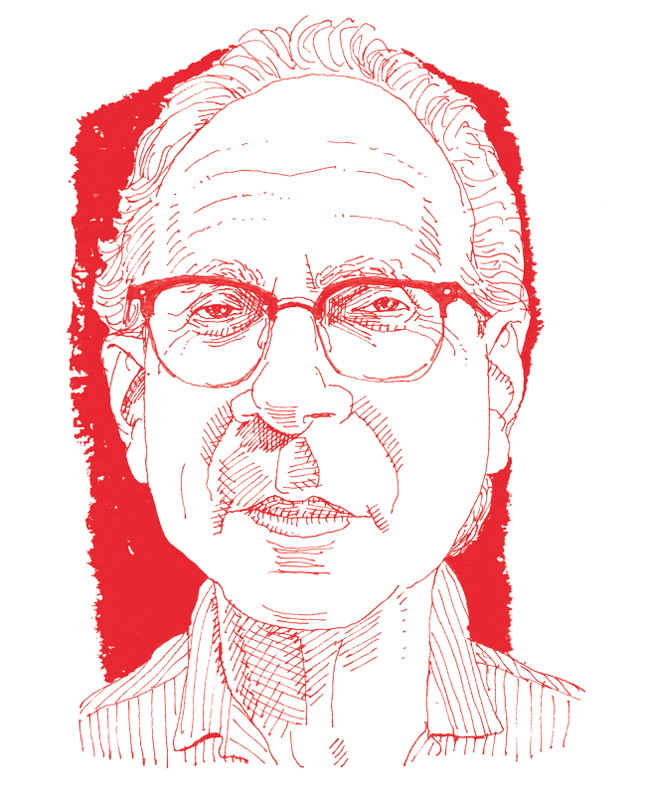
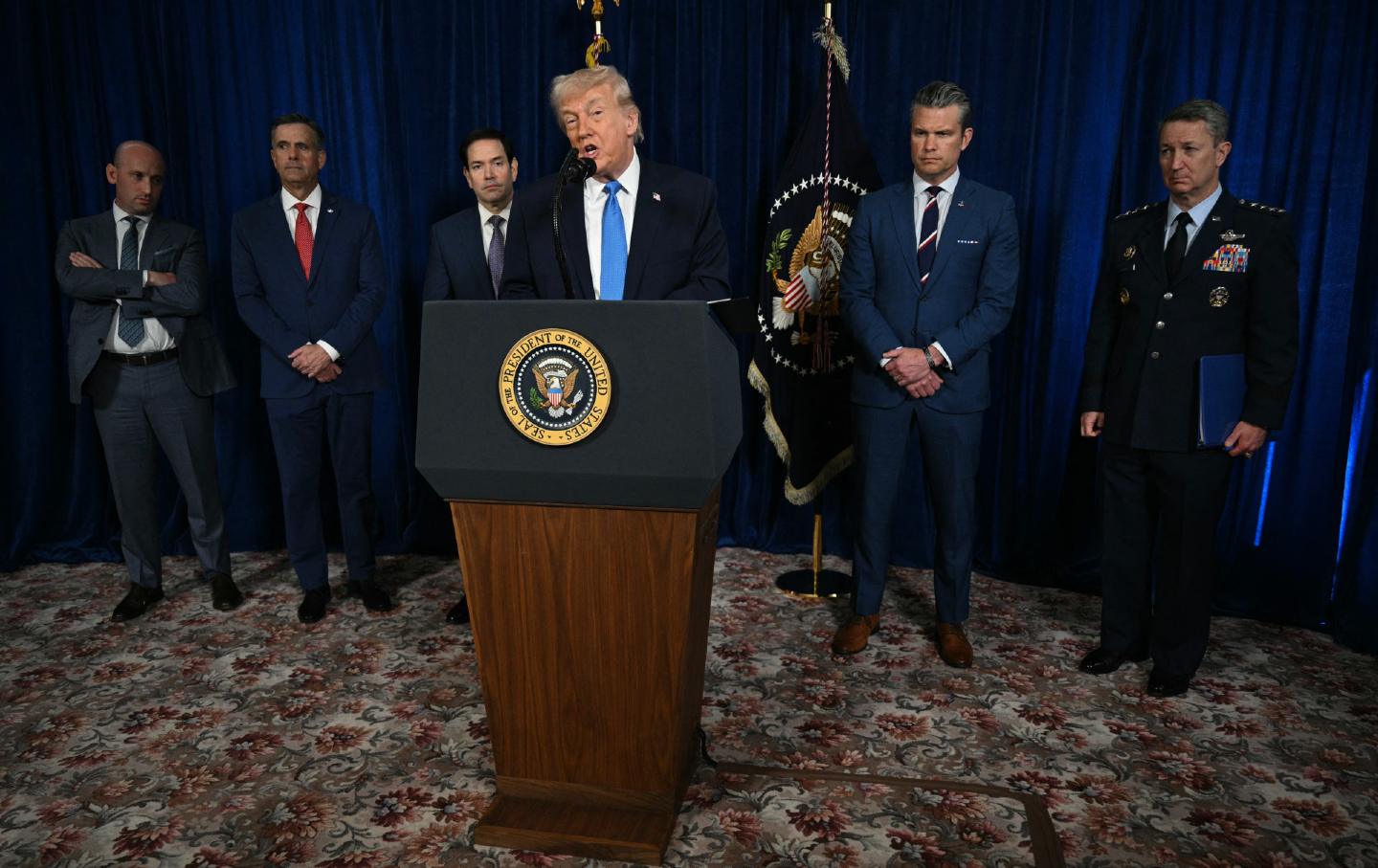
Members of Congress Decry Trump’s Act of War on Venezuela as “Illegal” Members of Congress Decry Trump’s Act of War on Venezuela as “Illegal”
Senators and House members accuse Trump and his aides of disregarding the Constitution and lying to Congress.
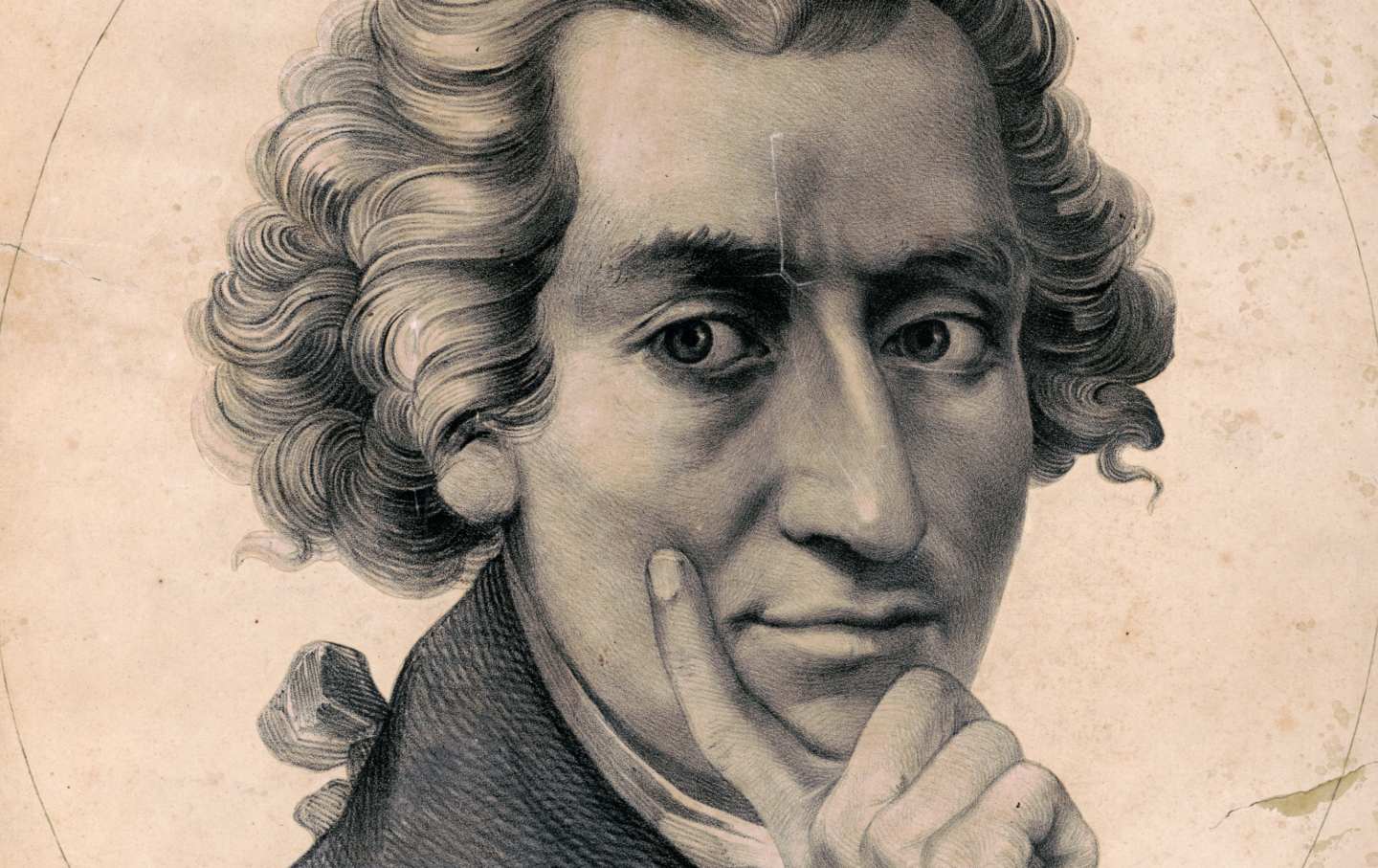
Make 2026 the Year of Thomas Paine Make 2026 the Year of Thomas Paine
As America celebrates its 250th birthday, remember the founder who rallied the people against British and American oligarchs.
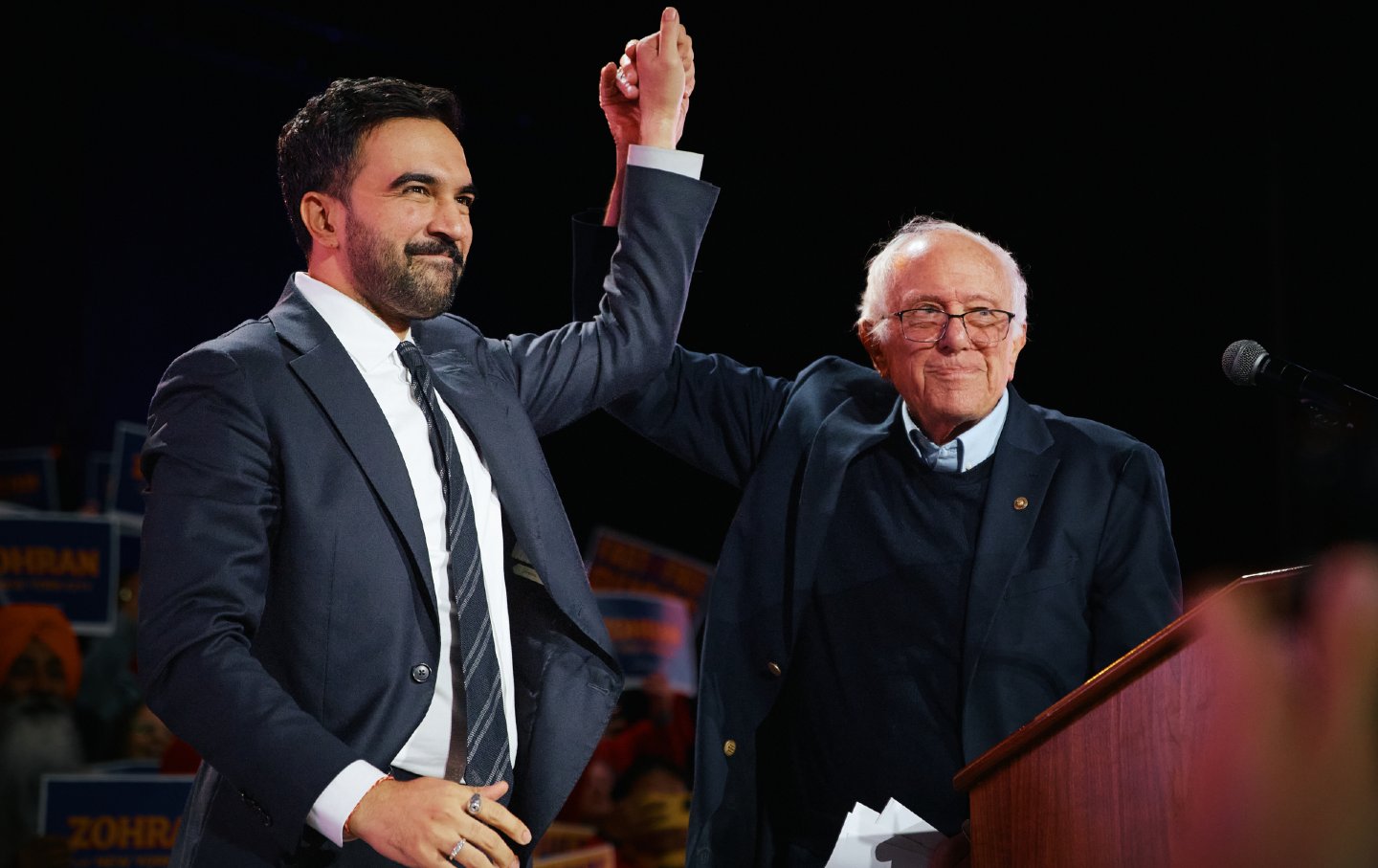
Zohran Mamdani on Welcoming Bernie Sanders for a “Bread and Roses” Inaugural Celebration Zohran Mamdani on Welcoming Bernie Sanders for a “Bread and Roses” Inaugural Celebration
In an exclusive interview with The Nation, the incoming democratic socialist mayor discusses making New York a “showcase of light” through the political darkness.

The Christmas Narrative Is About Charity and Love, Not Greed and Self-Dealing The Christmas Narrative Is About Charity and Love, Not Greed and Self-Dealing
John Fugelsang and Pope Leo XIV remind us that Christian nationalism and capitalism get in the way of the message of the season.
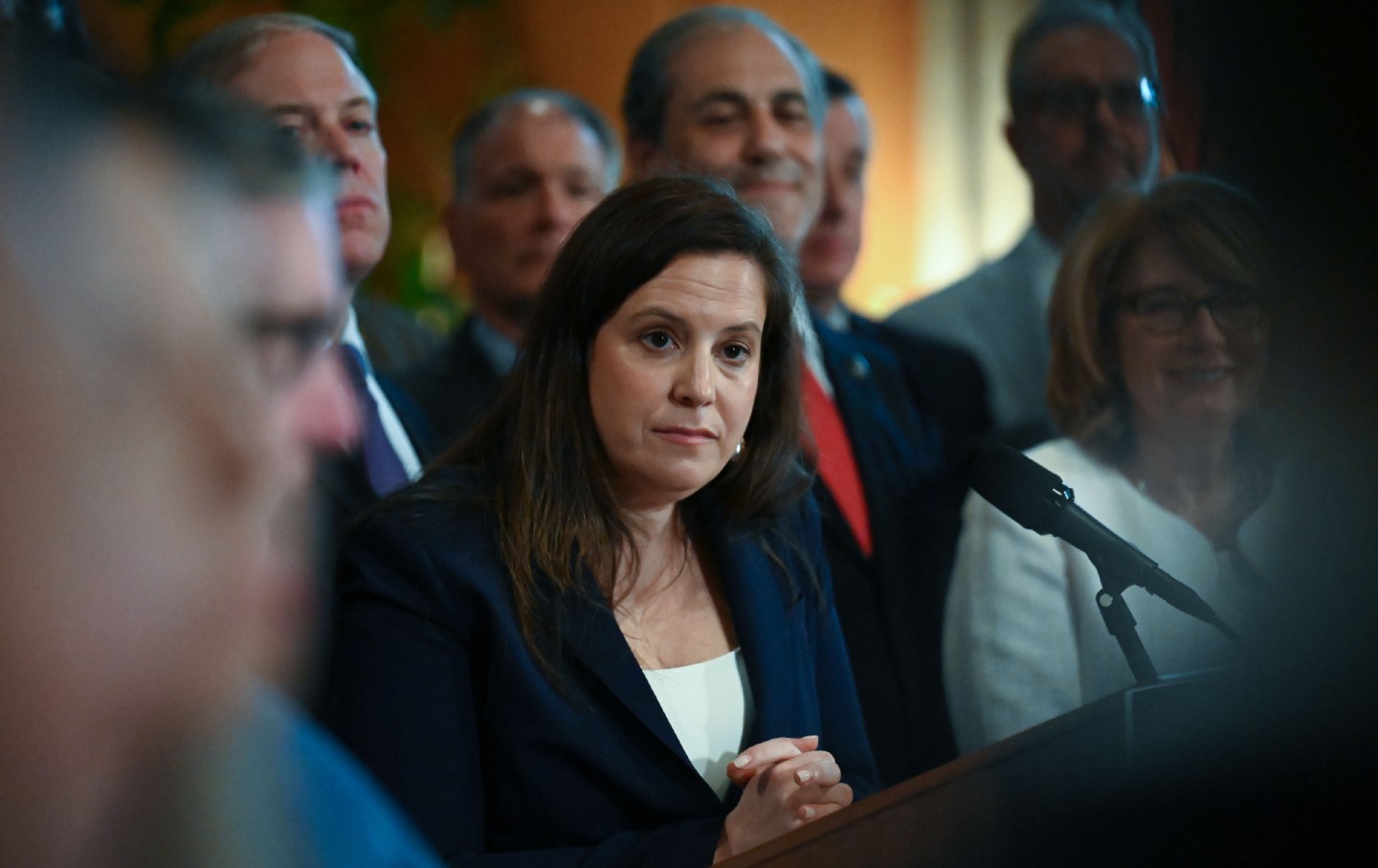
Recent Democratic Victories Have Republicans Running Scared Recent Democratic Victories Have Republicans Running Scared
Elise Stefanik is just the latest top Republican deciding against running in the 2026 midterms.
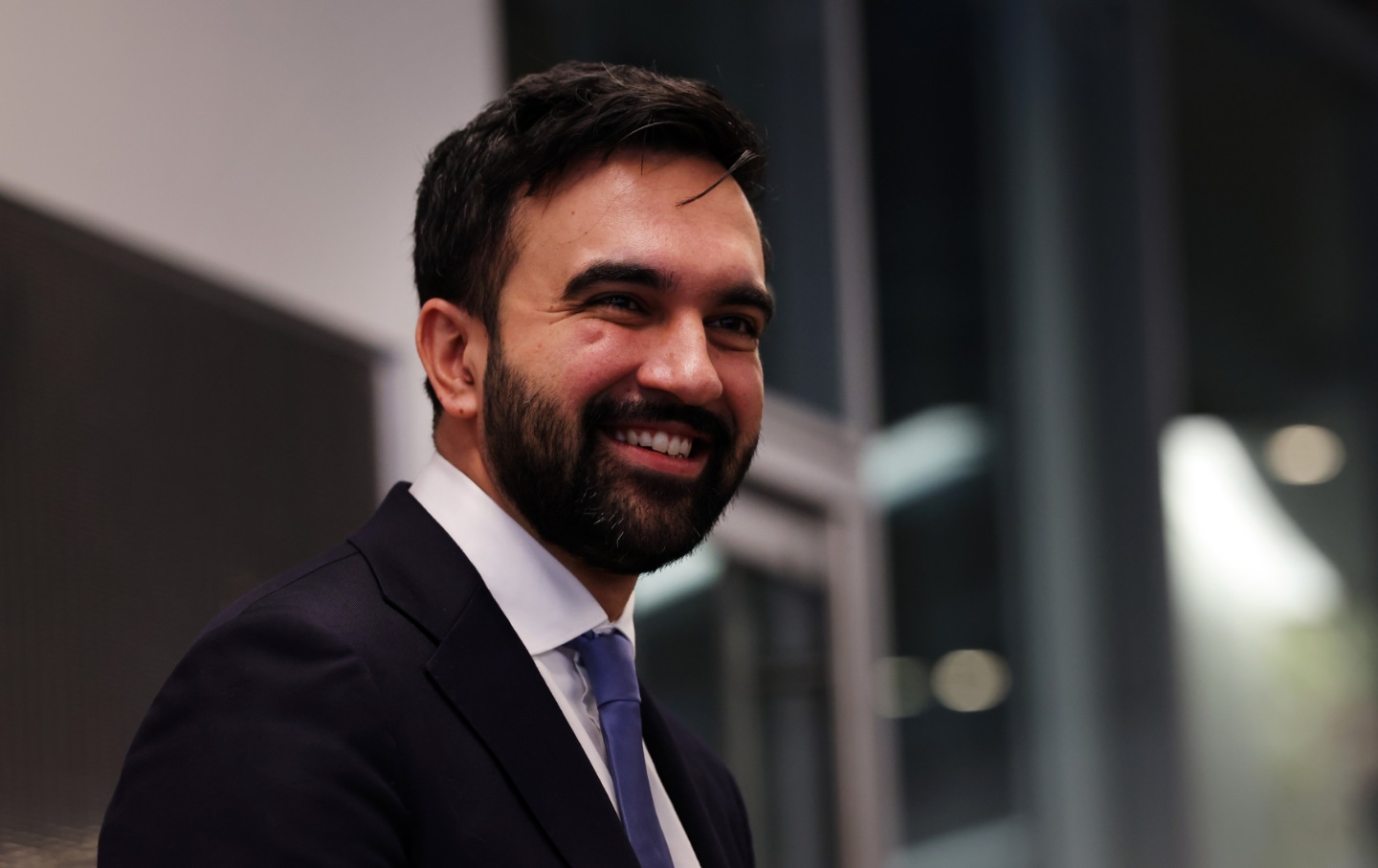
Zohran Mamdani on FDR, LaGuardia—and Trump Zohran Mamdani on FDR, LaGuardia—and Trump
In an exclusive interview with The Nation, the mayor-elect goes behind the scenes of his meeting with the president and talks about some of his political heroes.


